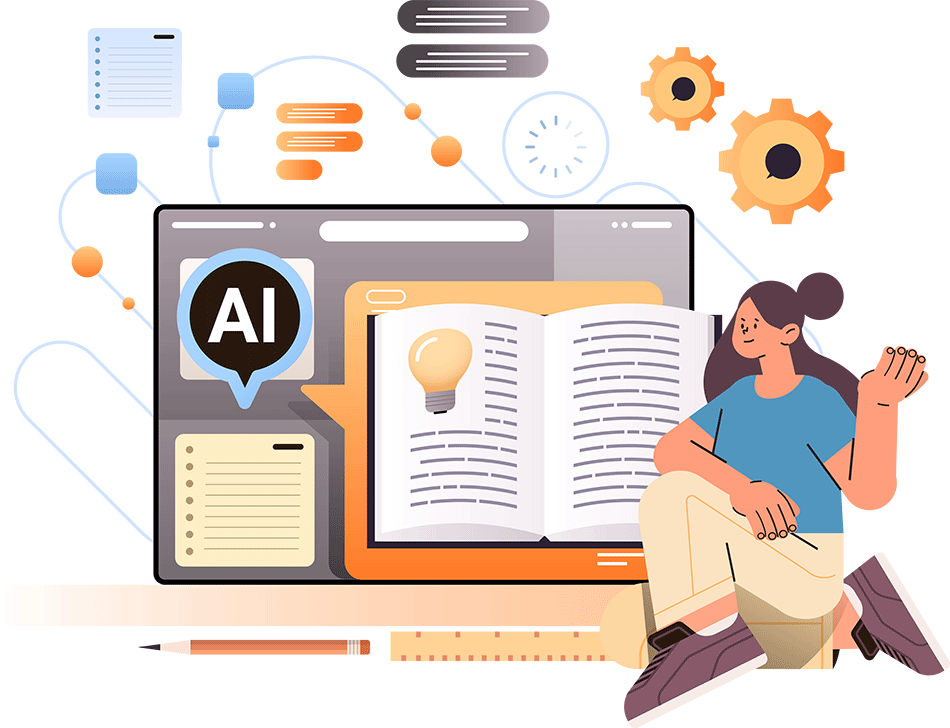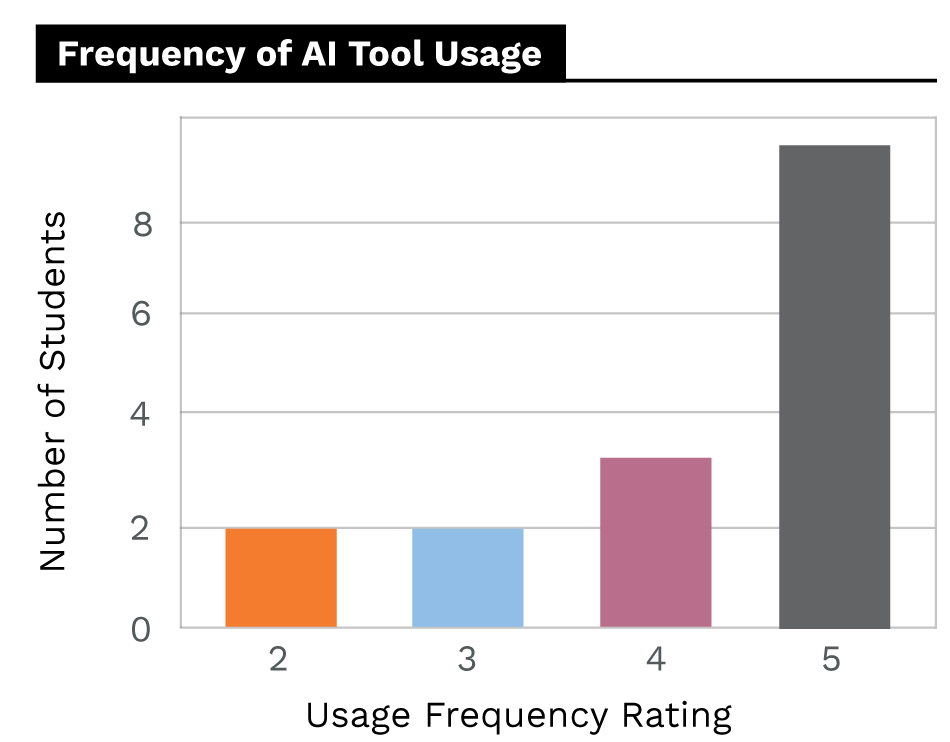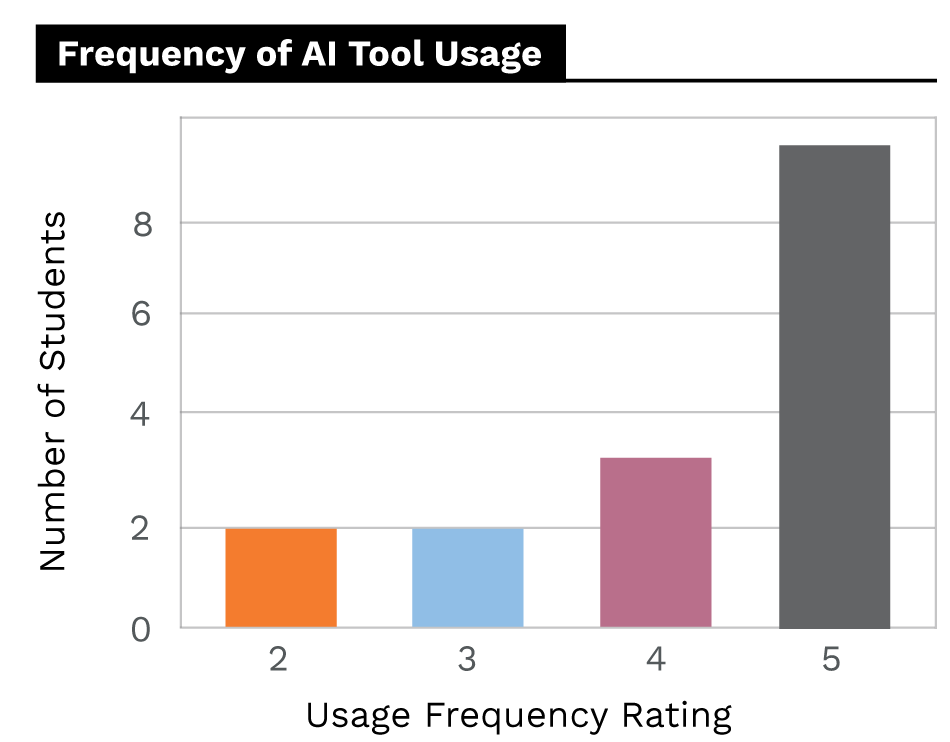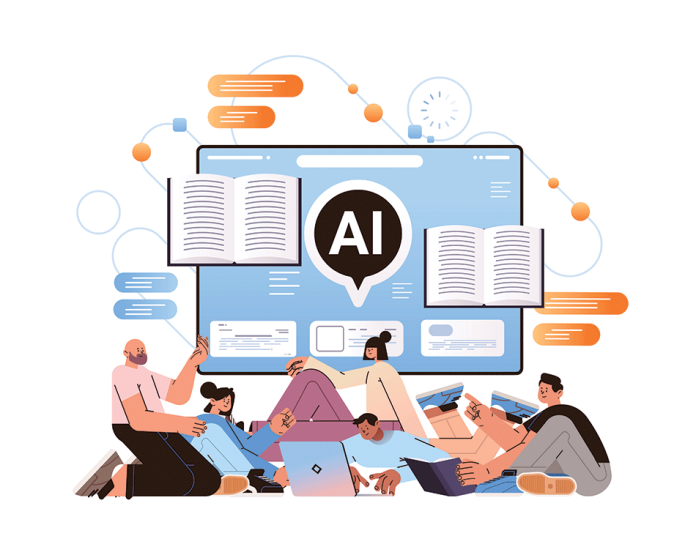By Rafif Srour
The academic world remains divided about the use of generative AI in classrooms. In this article, Rafif Srour explores her students´ perspectives on the use of generative AI in their learning.
A year ago, ChatGPT 3.0 was released, marking a turning point in the academic landscape. This advanced AI technology, characterised by its ability to generate human-like content, brought a wave of change that rippled across classrooms1 worldwide. Academic institutions grappled with its implications, oscillating between outright bans and enthusiastic adoption.2 Professors, caught in this wave, faced a steep learning curve. Some embraced generative AI as a way to enhance their teaching methods, while others hesitated, only to soon be pleasantly surprised by its profound effect on student performance, notably among those learners who had previously struggled.
The impact3 of generative AI in academia has been a topic of discussion and analysis,4 with over 2000 articles published to date (number of articles published since 2023 on AI in education, according to Google Scholar5) that explore its influence on education,6 the evolving role of professors,7 and the complex debate surrounding its use in the classroom.8 However, in the middle of this chaotic discourse, the voice of a key group remains largely unheard: the students themselves. Their perspectives9 on AI’s role in their education are crucial yet often overlooked, leaving a gap in our understanding of this technological turbulence.

This fall, I started teaching my Probability and Statistics class with a complex blend of enthusiasm, hopeful anticipation, and a touch of anxiety. This mixed sentiment was hardly surprising, considering that I dedicated the past year to immersing myself in the world of generative AI. I had exhaustively utilised every resource at my disposal to not only update and enhance my teaching materials but also to ensure that student engagement remained at the heart of my pedagogical approach. My commitment even led me to conceptualise a novel class format, one where students would interact with a GPT-powered robot as a teaching assistant. Although this idea didn’t materialise, it deepened my willingness to explore uncharted territories in educational technology.
As the semester progressed, I carefully observed student responses to the AI-assisted activities I had implemented, leading me to several key conclusions:
- It’s imperative to establish and communicate clear guidelines in every assignment, project, and activity about the permissible uses of AI tools. This clarity will ensure the proper and ethical use of AI in academic settings.
- Freshmen and sophomores often lack the necessary skills to critically evaluate AI-generated content. Emphasis should be on grounding them in fundamental concepts with minimal AI assistance.
- Professors are encouraged to use AI as a supplemental tool in teaching where it adds value, like in simple Python coding exercises. This approach not only aids learning but also frees up time for educators to foster critical thinking in the classroom.
- Regardless of the AI’s prevalence, students continue to value and seek guidance and mentorship from their professors. This was evident in activities where students used AI under my guidance and consistently sought my validation for the concepts they learned.
- Engaging students in discussions about the ethical use of AI tools is crucial. This should be approached not merely as a set of rules to follow but as a philosophical dialogue, encouraging students to reflect on the broader implications of their choices. This topic warrants further investigation.
- Students hold diverse and valuable views on the use and non-use of AI in their educational journey. These perspectives deserve attention and recognition in shaping future educational strategies.
Building on these observations, I engaged in an informal discussion with my students to gauge their thoughts on the use of AI, particularly generative AI, in the classroom and as an integral part of their curriculum. To complement these discussions, I also conducted a survey, receiving responses from 14 out of 41 students. The survey asked questions related to the usage and perception of AI in education, the efficiency of AI tools, human-AI interactions along with impact of AI on their cognitive processes. It is true that the sample size on which I am basing my analysis is small, but it still reflects some trends in students’ perceptions that are definitely worth considering. The synthesis of their opinions is as follows:


- Students acknowledge that AI tools have made their academic work more efficient (graph 1), but they also expressed their concerns about their understanding of the processes involved, highlighting a gap between using AI and comprehending its working.
- While students find AI effective in their learning processes (71.43%), there is an underlying anxiety about the rapid evolution of AI and its implications for how useful their current learning is.
- There is a consistent preference for human instruction, stressing the irreplaceable value of personal connection and tailored teaching that AI cannot replicate.
- A unanimous resistance to using AI as a replacement for human teaching and a strong desire to retain human educators’ unique capabilities.
A year has passed since the release of ChatGPT 3.0, and my conviction has only strengthened that AI is the transformative force academia requires. As the landscape becomes more defined, it’s increasingly evident that AI should not be viewed as an end, but rather as a means that encourages both students and professors to deeply consider the essence of learning and teaching. This journey of reflection is not solely about finding answers but about the process of discovery. As a student eloquently inferred, “When we ask a question in class, what matters to us is not just the answer itself, but understanding the process you, as a professor, go through to arrive at that answer. It’s about that moment of clarity when a concept finally clicks.” This sentiment underscores the value of the educational experience, where the human element plays a pivotal role. Another student’s perspective reinforces this idea: “I don’t believe AI tools can replace human instructors. AI can provide information and assist in learning, but it lacks the personal connection and understanding that a human instructor offers. AI cannot understand student emotions or adapt to individual learning styles in the way a human can. The human element in teaching is irreplaceable.”
These reflections solidify the consensus that, while AI can enhance the learning environment, the core of education remains deeply human. Both professors and students agree (at least for the moment) that technology, no matter its advancements, serves best as a complement to the irreplaceable human connection and insight at the heart of education.
This article is dedicated to my second-year Data and Business Analytics students. Your invaluable contributions, born out of thoughtful classroom discussions and your patient responses to my numerous surveys, have been the cornerstone of this article. Your engagement and insights have not only enriched this piece but have also deepened my understanding and appreciation of our shared learning journey. For this, I am endlessly grateful.
About the Author
 Rafif Srour, an esteemed international academic, brings extensive expertise in teaching, analytical research, and data analysis. A lifelong learner and advocate for women in STEM, Srour has earned multiple Best Professor awards. Thriving in multicultural settings across Lebanon, the USA, and Spain, she actively promotes coaching and mentoring for academic improvement. Srour, a member of IE University’s Learning Innovation Hub, gained recognition in 2021 as one of the top 183 Leading Data Academics by CDO magazine and among 55 leading women in technology in Spain. Passionate about leveraging technology in higher education, Srour, with a background in Agricultural Engineering and a Ph.D. in Environmental Soil Chemistry, currently serves as the Executive Vice Dean of the Sci-Tech School, following roles as Academic Director and interim Dean.
Rafif Srour, an esteemed international academic, brings extensive expertise in teaching, analytical research, and data analysis. A lifelong learner and advocate for women in STEM, Srour has earned multiple Best Professor awards. Thriving in multicultural settings across Lebanon, the USA, and Spain, she actively promotes coaching and mentoring for academic improvement. Srour, a member of IE University’s Learning Innovation Hub, gained recognition in 2021 as one of the top 183 Leading Data Academics by CDO magazine and among 55 leading women in technology in Spain. Passionate about leveraging technology in higher education, Srour, with a background in Agricultural Engineering and a Ph.D. in Environmental Soil Chemistry, currently serves as the Executive Vice Dean of the Sci-Tech School, following roles as Academic Director and interim Dean.
References
- Artificial Intelligence in Education. 05 August 1976. Nature. https://www.nature.com/articles/262435a0
- Embracing Artificial Intelligence in the Classroom. 20 July 2023. Harvard Graduate School of Education. https://www.gse.harvard.edu/ideas/usable-knowledge/23/07/embracing-artificial-intelligence-classroom
- Engineering Education in the Era of ChatGPT: Promise and Pitfalls of Generative AI for Education. 22 May 2023. IEEE Xplore. https://ieeexplore.ieee.org/abstract/document/10125121
- 4. Impact of the Implementation of ChatGPT in Education: A Systematic Review. 29 July 2023. MDPI. https://www.mdpi.com/2073-431X/12/8/153#B5-computers-12-00153
- “AI in education”. 2023. Google Scholar. https://scholar.google.com/scholar?as_ylo=2023&q=%22AI+in+education%22&hl=en&as_sdt=0,5
- AI in Education. 2023. Education Next. https://www.educationnext.org/a-i-in-education-leap-into-new-era-machine-intelligence-carries-risks-challenges-promises/#:~:text=Using%20generative%20AI%2C%20school%20administrators,to%20identify%20patterns%20or%20needs
- Professors in the Age of AI. 21 March 2023. Insights. https://www.ie.edu/insights/articles/professors-in-the-age-of-ai/
- ChatGPT Has Entered the Classroom: How LLMs Could Transform Education. 15 November 2023. Nature. https://www.nature.com/articles/d41586-023-03507-3
- Student Perspectives on the Role of Artificial Intelligence in Education: A Survey-Based Analysis. July 2023. Research Gate. https://www.researchgate.net/publication/372551269_Student_Perspectives_on_the_Role_of_Artificial_Intelligence_in_Education_A_Survey-Based_Analysis



































































